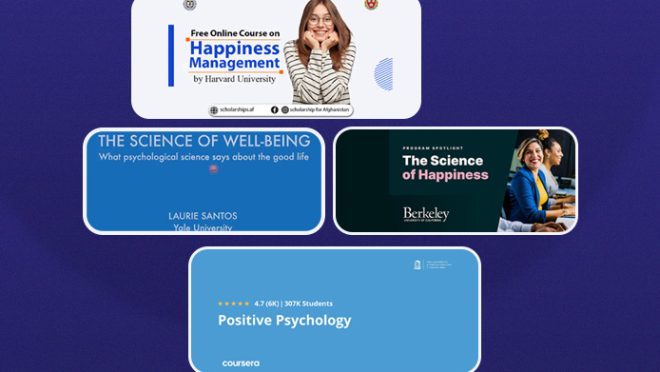Want to opt for Happiness Courses? Check out these four free courses to get a better life
Want to opt for Happiness Courses? Check out these four free courses to get a better life

Have you ever thought about learning what happiness is, what makes us happy, and how to achieve a happy life? This thought seems unreal because happiness is an emotion; theoretically, you cannot read and learn it.
But to prove you wrong, several renowned universities and institutions offer happiness courses to students. These happiness courses will help you get a detailed idea about happiness and its ways to achieve it.
Managing Happiness by Harvard University: This course is about understanding diverse definitions of happiness and its function in everyday life, and applying the mind, body and community science to manage emotions and behaviours for greater happiness. It introduces you to the modern science of human well-being and shows you how to practice it. Unlike other happiness courses, Managing Happiness goes a step further. It demonstrates how you can share ideas with others, thus bringing more happiness and love to the world and supercharging your efforts for well-being.
The Science of Well-Being by Yale University: Offered by Yale University, this course will help you engage in a series of challenges designed to increase your happiness and build more productive habits. In preparation for these tasks, Professor Laurie Santos revealed misconceptions about happiness, annoying features of the mind that lead us to think the way we do, and the research that can help us change.
BerkeleyX’s The Science of Happiness: The first MOOC to teach you ground-breaking science of positive psychology, which explores the roots of a happy and meaningful life. Students will engage with some of this science’s most provocative and practical lessons, discovering how cutting-edge research can be applied to their lives.
Positive Psychology by The University of North Carolina at Chapel Hill: This course discusses research findings in positive psychology, conducted by Barbara Fredrickson and her colleagues. It also features practical applications of this science that you can use immediately to help you live a whole and meaningful life. There are six modules in this course.


